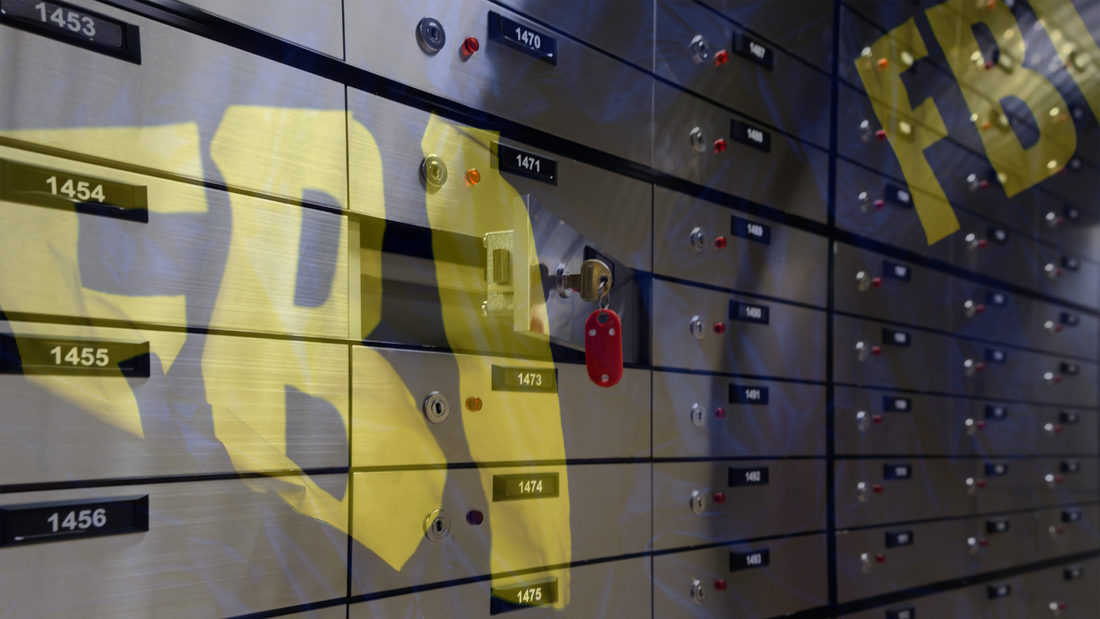|
Just as the government hates encryption, so too does it hate encryption’s physical analogue in the form of safety deposit boxes.
The mere existence of US Private Vaults – a company in Beverly Hills that could not reveal customers’ names because it did not collect them and could not open the vaults it provided because it did not keep duplicate keys – was prima facie evidence to the FBI of wrongdoing. Seeking to expose what it believed would be a nest of drug dealer cash, the FBI persuaded a magistrate to allow agents to open these vaults with the express purpose of checking the identities of account holders on sheets taped to the inside of the vault’s safety deposit boxes. FBI agents took this warrant as an excuse to seize assets over $5,000 – though the owners were charged with no crime. In 2021, Reason documented in stills taken from surveillance footage how agents rampaged through the vaults and boxes in a frenzy, ripping open a heavy-duty envelope full of gold coins kept by an 80-year-old woman for her retirement savings. Coins fell to the floor, which the FBI cannot account for now. Some $2,000 in cash seemingly “disappeared.” The woman and other victims, with the help of the Institute for Justice, mounted a class-action lawsuit against the FBI. While US Private Vaults later pled guilty to money laundering charges, these plaintiffs had a host of mundane reasons for turning to its services. Reasons varied from distrust of the stability of banks during the Covid era, to transferring assets from a bank in a wildfire zone, to finding that safety deposit boxes at other institutions had long waiting lists. The Ninth Circuit unanimously reversed a lower court verdict and rebuked the FBI for a lawless search. Judge Milan Smith Jr. said the government had opened the door to the “limitless searches of an individual’s personal belongings” reminiscent of the agents of the British crown in ransacking colonial America. The Ninth’s strong stand for the Fourth Amendment is good news. But, as we have seen in governments’ war on encryption, there is a mindset shared by many in law enforcement that something private is inherently suspicious and worthy of warrantless examination. Comments are closed.
|
Categories
All
|


 RSS Feed
RSS Feed